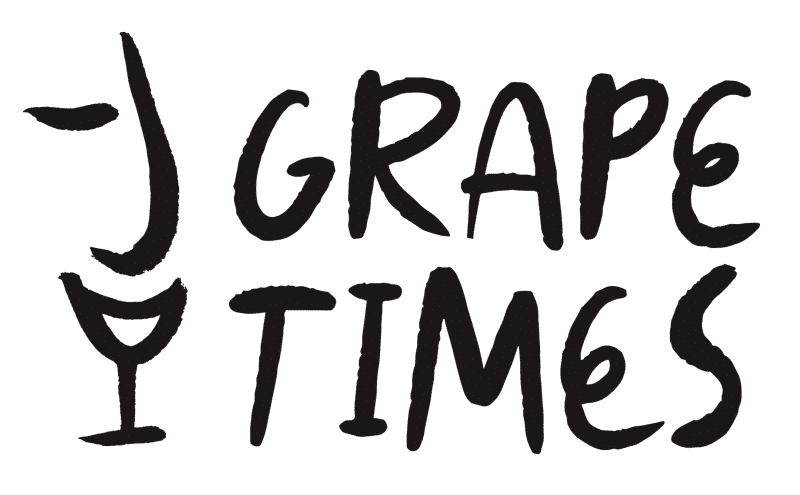HERE YOU WILL FIND EVERYTHING YOU NEED TO KNOW ABOUT WINES AND NATURAL WINES
Order
We always send Monday and Wednesday afternoons. In Germany you will usually get your delivery on Tuesday or Thursday. Depending on the volume of parcels, it can sometimes take a day longer. We deliver all our packages with UPS, and they are CO2-neutral.
In Europe delivery usually takes 2 days, so your wine will be with you on Wednesday or Friday.
UPS only delivers Monday through Friday and makes up to 3 delivery attempts.
Unfortunately, online orders cannot be picked up in Munich as we still have an external warehouse.
If you would like to buy your wines personally, you are welcome to visit us in our cellar near Gärtnerplatz (Am Einlaß 4, Munich). There are also mostly a few wines to try!
Call us, we are here for you:
+49 (0)156 783 862 49
Wine info
The Wyldness Level should help you to assess the wines for you and to find the right wine for you. We have divided the wines into 5 categories:
- Not Wyld – classic wine, don't go wrong.
- Minimal Wyld - but hardly noticeable.
- Medium Wyld – a good introduction to the world of more exotic wines and tastes.
- Wyld – something for people who like to drink wilder wines with a bit of funkyness.
- Totally Wyld – Rather for experienced drinkers and natural wine fans. Wild yeasts, cloudy wines... the funky shit. (However, we always pay careful attention to cleanly produced wines).
Sulphite is a chemical additive that helps stabilize wine.
Why does natural wine still have sulfites without adding sulfur (SO2)?
Grapes and vines naturally contain sulphites. It's a bit absurd, but almost every wine must have the addition "contains sulphites" noted on the bottle. Even if no sulfite or at least only extremely small amounts were added.
Almost all of our winemakers work with very little or no sulfur during bottling. We think you can taste it! In our experience, the hangover the next day is noticeably less :)
Here is an overview of the sulfite limit values for conventional, organic and biodynamic wines.
| Conventional wine | BIO - wine | Biodynamic wine | |
| Residual sugar: | |||
| Dry red wine (up to 5 g sugar) | 160 mg / l | 120 mg / l | 100 mg / l |
| Dry red wine (over 5 g sugar) | 200 mg / l | 170 mg / l | 100 mg / l |
| Dry white wine/rosé (up to 5 g sugar) | 210 mg / l | 170 mg / l | 140 mg / l |
| Dry white wine/rosé (over 5 g sugar) | 260 mg / l | 220 mg / l | 180 mg / l |
| Sparkling wine | 235 mg / l | 205 mg / l | 180 mg / l |
We love orange wine, the fourth color of wine. Simply put, orange wine is white wine or natural wine fermented on the skin (mash).
Orange wine, also called amber, is made with white wine grapes with long skin contact. This gives the wines a unique mixture of the freshness of the white wine and the “grip” from the tannins that occur when the skin comes into contact (maceration), which is otherwise only found in red wines. With orange wine, super healthy grape material is a basic requirement, which is why all our orange wines come from biodynamic vineyards. The production usually takes place in Amphorae, large wooden fudges or concrete eggs. The production is very labor-intensive, as the grapes stay on the mash for several weeks or months and have to be stirred by hand several times a day to create this unique taste.
Orange wines have a lot of history and are now making a comeback. Wine was made in Europe in this way more than 7000 years ago.
The wines can be extremely different in terms of taste, smell and color. In particular, varieties with reddish berries such as Pinot Gris or Roter Veltliner result in a strong orange-red. The mash fermentation provides more stability against oxidation. They have subtle aromas of baked apples, pears, nuts, caramel, figs, dried fruits and dates, but little fruitiness. However, the typicity of the variety is preserved particularly well in the case of aromatic varieties (such as Traminer and here in particular Gewürztraminer, Muskateller, Sauvignon Blanc and Scheurebe). The fact that the “Orange Wine Festival” has been taking place in Vienna and Berlin every year in November for about 10 years shows the increasing popularity.
Certified Organic farms may use the English expression "Natural Wine" (but not "Raw Wine"). These are for wines labeled in this way Enrich for the purpose of increasing alcohol, the Sweetening, as well as the addition of treatment agents with the exception of Bentonite and sulphurous acid inadmissible.
Natural wine: Nothing in, nothing out.
"Fermented grape juice: grapes, grapes and more grapes, and the result is wine".
For us means Natural wine: as natural as possible. In other words, letting the wine go its own way, from the viticulture to the finished wine in the bottle. This creates the lively and exciting taste of natural wines that differs from conventional wines. So get involved and you will be surprised, I promise! :-)
We have defined the following natural wine principles for ourselves:
- Biodynamic work in the vineyard
- Spontaneous fermentation without the addition of cultivated yeast
- Unfined, without the addition of "fining agents" (you wouldn't believe what you can do with conventional wine - here we write something extra about it)
- Bottled unfiltered - only naturally clarified
- Minimal sulfuruse up to max.25mg / l
For the term Natural wine, also called RAW Wine, there are no set rules yet. However, most winegrowers agree that organic viticulture precedes the term natural wine. With organic cultivation, the focus is on healthy grapes, which requires extensive care of the vineyard. What is of course also important for spontaneous fermentation are intact and healthy cultures on the vineyard and in the grapes. At first it sounds simple and self-explanatory: “Read the grapes and let them ferment”. But if you start to take a closer look at the production steps, it quickly becomes apparent that natural wine in its purest form is almost a miracle. A great balancing act between life in the vineyard, in the cellar and in the bottle.
#lively #pure #genuine #authentic #natural #fantastic :)
Meditation wines are normally not consumed as a meal accompaniment, but rather with the necessary leisure "to be enjoyed alone". The well-known Italian wine author Luigi Veronelli (1926-2004) describes them as “Particularly multi-layered, unusual wines that are suitable to be enjoyed sip by sip by the fireplace on a long winter evening and to generate a bit of surprise, cozy warmth and happiness with every sip".
Decanting or actually called caraffing leads to more air in the wine.
We actually recommend all still wines to careers. Almost every wine is good for about 30-90 minutes. Of course, this applies above all to red wine, but it also really brings some wines to life with orange wine and white wine.
Especially with Natural wines the supply of air is exciting. You will also notice this when you try a wine the next day. There's a lot going on in terms of taste! Just try it.
You can actually use any container for decanting. We prefer it uncomplicated with our Erlmayer decanter. Theoretically, you can also use a (clean) cooking pot or a flower vase. We usually pour the decanted wine back into the bottle, so you can enjoy the beautiful bottle and give the next wine of the evening some air.
Most of the principles of organic or ecological agriculture have existed since time immemorial. But the ecological awareness began to develop with the so-called "Life Reform Movement" in the 1920s.
At biological Viticulture is aimed at avoiding the use of artificial, synthetic chemicals in the vineyard. The use of pesticides, herbicides, fungicides and synthetic fertilizers is restricted or prohibited in organic farming. Plant- and mineral-based fertilizers are used to combat pests, improve soil health, build resilience and improve nutrient uptake. This creates ideal conditions for useful soil organisms. The basis for healthy, resilient and strong grapes. The fertility essentially depends on the right combination of fertilization, soil and green cover care.
Quality not quantity!
The ecological idea continues in the wine cellar, where the following applies: less is more. Tradition meets modernity. Fermentation is carried out by many producers using natural yeasts from the vineyard, in the form of spontaneous fermentation, but this is not an absolute requirement. The use of Sulfur dioxide is kept as low as possible. Organic wines contain on average at least a third less sulphites than conventional wines. The minimum standard is the EU directive for organic farming (2092/91), which specifies which tools may be used in the vineyard and in the cellar.
More and more winegrowers have understood that organic viticulture is the basis for better wine in harmony with our nature. The trend is going in the right direction: up to 7 % of the world's wineries cultivate organically or are in the process of conversion. We hope and are working to add many more.
"RESPECT FOR NATURE"
Biodynamic agriculture is a special form of organic viticulture, so to speak "next level" organic. It was developed in 1920 by the Austrian anthroposophist Rudolf Steiner.
Biodynamic viticulture sees the vineyard and its surroundings as a holistic system in which people, animals, plants and soil cultures interact.
Livestock farming and mixed culture form the central aspect of management. Even more than organic farming, the focus is on prevention rather than treatment. Viticulture is seen as an organism in harmony with nature.
The biodynamic approach is becoming increasingly popular in the wine industry. Rightly so! :) Did you know that depending on the country, it takes 7-9 years of conversion to switch from conventional viticulture to biodynamic viticulture?
A bit more nerd talk: To stimulate microbial life, natural plant-based preparations, such as herbs such as yarrow, chamomile, nettle, etc. are used. Quartz, copper and sulfur are also used as fertilizers. The holistic approach recognizes that factors such as light, gravity or gravitation have a significant impact on life on our earth.
Biodynamics continue in the cellar, where the extra effort in the vineyard pays off. The winemaker accompanies and controls the development of the wine Biodynamic wine. Physical or chemical intervention and influencing the fermentation with pure culture yeasts are not permitted. The healthier the vines, the better the harvested grapes and the less work in the cellar is required. This results in quality wines with a deep, complex taste that is shaped by the terroir. We love genuine and non-laboratory-bred wines.
The hard work pays off in the taste: diverse, lively, natural, extraordinary and close to nature - BÄM - Enjoy!" We are celebrating Biodynamic wines and look forward to the variety of flavors that lie ahead of us!
Biodynamic wines are subject to even stricter requirements than organic or ecological wines and are certified by independent, private organizations such as DEMETER, RESPECT BIODYN or ECOVIN controlled and certified.
For us, the focus is on the work of the Winemaker in the foreground and not the certification. That is why we also have micro wineries that do not have a seal but still work according to biodynamic principles.

